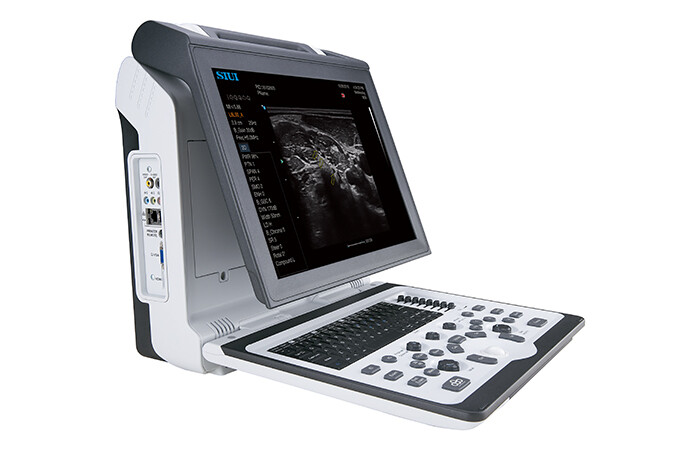Supplying quality ultrasound scanners for over 10 years
Elevating Animal Healthcare: The Profound Benefits of Veterinarians Learning to Perform Heart Scans Using Ultrasound
In the ever-evolving field of veterinary medicine, diagnostic technology continues to play a pivotal role in providing top-notch healthcare for our cherished animal companions. Among the ground-breaking advancements, learning to perform heart scans on animals using ultrasound has emerged as a transformative skill for veterinarians. In this article, we will delve into the profound benefits of veterinarians mastering the art of heart scans through ultrasound, and how it revolutionises the landscape of animal healthcare.
1. Precise Detection of Cardiac Conditions
Ultrasound-based heart scans, also known as echocardiograms, offer veterinarians real-time, high-resolution images of the heart's structure and function. With this non-invasive and painless procedure, veterinarians can precisely detect cardiac conditions, such as heart murmurs, cardiomyopathies, and valvular defects. Early detection allows for prompt intervention and targeted treatment plans, improving the prognosis for animals with cardiac issues.
2. Comprehensive Assessment of Cardiac Health
By acquiring the skill to perform heart scans, veterinarians gain the ability to conduct comprehensive cardiac evaluations. The detailed imaging provided by ultrasound allows for the assessment of heart chamber dimensions, blood flow patterns, and cardiac wall movements. This holistic evaluation empowers veterinarians to better understand the animal's cardiac health, facilitating tailored treatment approaches that address specific needs.
3. Immediate Care in Critical Cases
In emergency situations, every second counts. Veterinarians equipped with the capability to perform heart scans can quickly assess a patient's cardiac status, guiding immediate care decisions. This is particularly crucial in cases of cardiac arrhythmias, heart failure, or trauma, where prompt evaluation can be life-saving.
4. Non-Invasive and Stress-Free for Animals
Ultrasound-based heart scans are non-invasive and do not require surgical incisions. The procedure is performed externally using an ultrasound probe, ensuring a stress-free experience for animals. This approach reduces anxiety and discomfort during examinations, creating a more positive and comfortable environment for both the animal and their owner.
5. Invaluable Tool in Pre-Anaesthetic Evaluations
Prior to administering anaesthesia for surgical procedures, veterinarians must assess the animal's cardiac health to ensure their heart can withstand the stress of anaesthesia. Heart scans provide essential information about cardiac function and structure, enabling veterinarians to make well-informed decisions during pre-anaesthetic evaluations. This precautionary step enhances patient safety during surgeries.
6. Continuity of Care and Client Trust
When veterinarians can perform heart scans on-site, they offer comprehensive care without the need for external referrals. This continuity of care fosters stronger relationships with clients, who appreciate the convenience and trust in their veterinarian's expertise. Additionally, being able to conduct heart scans in-house saves time and reduces stress for both the animal and their owner.
7. Professional Advancement and Reputation
Mastering the skill of heart scans using ultrasound elevates veterinarians' professional standing in the field of veterinary cardiology. This advanced expertise positions them as reputable professionals, attracting a broader clientele and enhancing their practice's reputation. Veterinarians who embrace this transformative skill demonstrate a commitment to staying at the forefront of animal healthcare.
Conclusion
The benefits of veterinarians learning to perform heart scans on animals using ultrasound are profound, encompassing precise detection of cardiac conditions, comprehensive assessments, and immediate care in critical cases. This skill empowers veterinarians to deliver more accurate diagnoses, personalized treatment plans, and enhanced patient care. With its non-invasive and stress-free nature, ultrasound-based heart scans create a positive and comfortable experience for animals, ensuring their well-being while strengthening the bond between veterinarians and their clients. Embracing this transformative skill is a leap towards elevating the standards of animal healthcare, paving the way for a healthier and happier future for our beloved animal companions.
Excellent for Cardiac

Apogee 2300 ultrasound scanner
Apogee 2300 ultrasound scanner
Please email: contact@visultrasoundscanners.com or call 0208-432-9802 to discuss your requirements
£0.00
Display prices in:GBP
